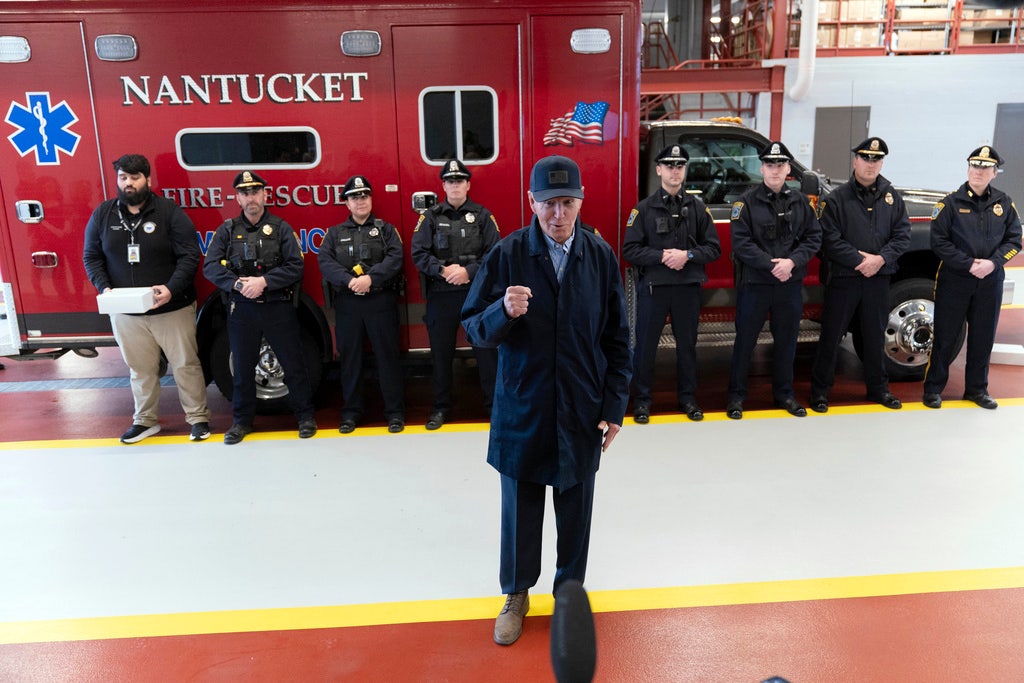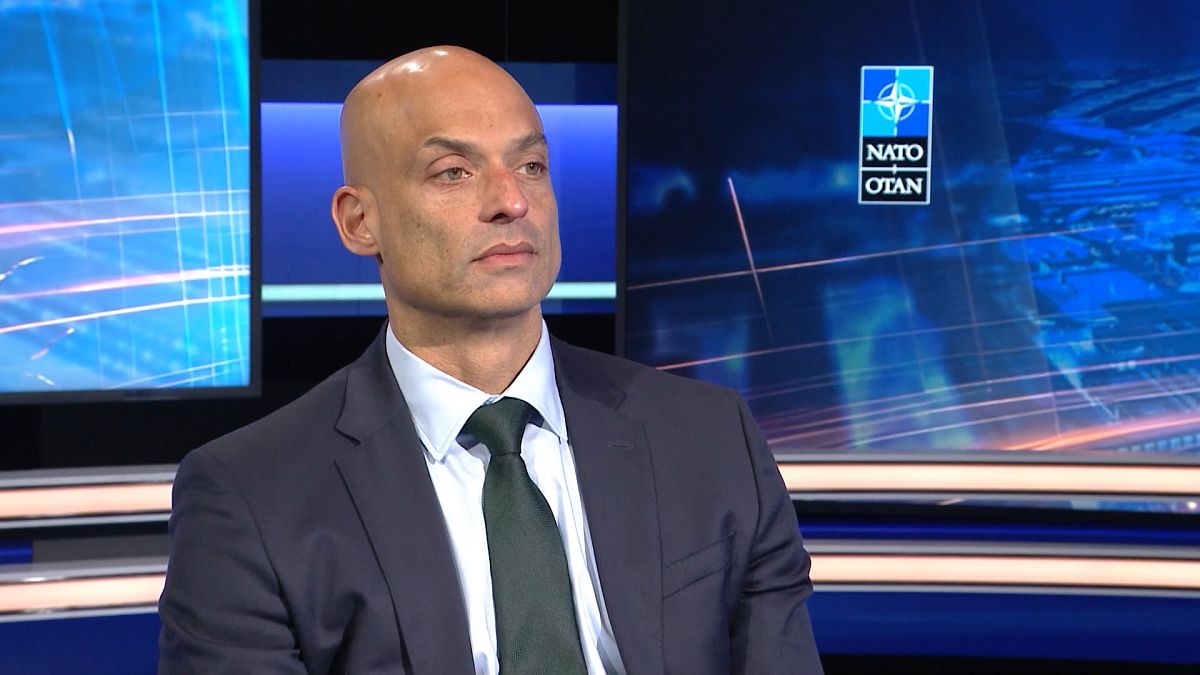Mississippi
In the Mississippi Delta, Hoping for Opportunity After a Ruinous Tornado

Two years into their marriage, Talia and Malissa Williams were working diligently to lay the groundwork for the rest of their lives together. Both were taking online college classes that could lead to stable careers. They had taken tentative steps toward adopting a child.
The couple had talked about settling permanently in Rolling Fork, the tiny Mississippi Delta hometown that Malissa had followed Talia back to a few years earlier. But the medical billing and coding jobs they’d been studying for weren’t likely to be found within an hour’s drive. Their older wooden house — essentially their least worst option in a town with a limited supply of rental housing — gave them nothing but problems.
Then came the tornado.
The house, gone. Their possessions — cars, clothes, computers — eviscerated in winds that reached 170 miles an hour, as the storm, the deadliest to hit Mississippi in more than a decade, tore through on the night of March 24.
Gone, too, was any incentive for them to stay.
“My heart is in Rolling Fork, it will always be there,” Talia, 42, said as she stood outside the motel room, 45 minutes’ drive away, that is serving as the couple’s temporary home. “But now this has happened, we have an opportunity,” she said.
As powerful storms raked across the Southeast on that night in March, Rolling Fork was shredded. Sixteen people were killed in the area. Dozens of families were forced into the same position as Talia and Malissa: Their homes were mangled, their lives upended in an instant.
But just like Talia and Malissa, many people in the community had already been navigating a slower-motion crisis for years, one that has swept the whole of the Mississippi Delta over decades of disinvestment and decline.
The devastation of this other disaster is manifest in the decaying homes and abandoned storefronts in the few areas of Rolling Fork left unscathed by the tornado, as well as in the city’s neglected infrastructure, entrenched poverty, struggling schools and troubling health statistics. The population of about 1,700 has been shrinking steadily for as long as most residents can remember.
“We were struggling to rebuild the town before the tornado,” said Angela Hall Williams, a longtime resident. She ticked off some of the things that had disappeared from Rolling Fork long before the storm, including decent-paying jobs, thriving stores, and any evidence of bustle.
The Delta — a pancake-flat expanse wedged between the Mississippi and Yazoo Rivers in the northwestern part of the state — has long been defined by a contradiction. It is known for having some of the most fertile soil in the world, sustaining cotton, soybean and corn crops that for generations have been distributed around the world. But the bounty has rarely been shared in any meaningful way with the African American families who make up much of the population in the impoverished, hollowed-out communities that speckle the region, like Rolling Fork.
“You still see the vestiges of racial segregation, of economic segregation,” said Rolando Herts, the director of the Delta Center for Culture and Learning at Delta State University, in Cleveland, Miss. “We’re inheriting the decisions that were made years and years, decades and decades ago.”
The most viable solution for many Delta residents has been to leave. That was the case during the Great Migration, the mass exodus from the South of African Americans fleeing racist oppression and poverty during the 20th century. The population drain continued as increased mechanization of farming reduced the need for farm laborers and other types of industry fled the region.
Annie Lee Reed, 69, spent most of her life in Rolling Fork, but she was relieved when her children left town. The distance was difficult, but the alternative was worse. If they stayed, she said, “I knew they weren’t going to do nothing or make nothing.”
There are those who believe the tornado was not a nudge to flee, but an opportunity for Rolling Fork. In the immediate aftermath, Mayor Eldridge Walker assured the community that the city would “come back bigger and better than ever before.”
His argument was that the storm had drawn attention, and the prospect of investment, to the town. If not for the tornado, President Biden would never have flown in and promised the support of his administration. “Good Morning America” would never have broadcast live from Rolling Fork, or solicited donations for the town from viewers.
As cleareyed as Ms. Hall Williams was about what ailed Rolling Fork, she was among those who saw promise in the town. “It’s coming back,” she said confidently.
Her home was severely damaged by the storm, leaving Ms. Hall Williams and her husband to stay in a motel outside of town. But she was sketching out plans to open a restaurant serving her favorites: macaroni and cheese, catfish, brisket. She would be an employer, someone helping Rolling Fork survive, giving others incentive and resources to stay put.
“I’m not giving up,” Ms. Hall Williams said.
Henry Hood was far less sanguine. Two months after the tornado, the attention to the town had already faded. Assurances from elected officials were followed by a formal process for seeking government assistance that was so thick with bureaucratic and other hurdles that even the best of intentions were no match.
So far, he and Ms. Reed, his wife, had gotten $650 in federal emergency aid to fix a damaged car, and $1,200 from a church to repair their house, which had been handed down from Ms. Reed’s parents.
“It’s just going to be patched back up, little by little,” Mr. Hood said of his home. “There’s not going to be a remodeling and all that.”
His prediction: The same would be true for Rolling Fork.
The community was daunted by a bleak catalog of destruction: City Hall, the post office, the Police Department, both laundromats, the Family Dollar store, the convenience store that also had a decent menu of hot food.
There were also things that, while not essential to a functioning community, held deep value as the landmarks of home. Domonique Smith, who grew up in Rolling Fork, noticed the loss of the pear tree in the yard of a woman known as Miss Louise, which had long been harvested by neighborhood children.
Ms. Smith’s mother’s house had seemingly vaporized, its contents spread across the neighborhood. She found a single photograph of her father, who died when she was so young that she had no memories of him. A neighbor found a photo of Ms. Smith in her cap and gown, from when she was the valedictorian of her class at South Delta High School.
Now 35, she lives in Jackson, the state capital, almost 90 minutes away. But she said she had always found comfort in knowing her mother’s house, a safe haven, was there in Rolling Fork.
She returned to Rolling Fork on a recent Sunday because her family, at last, had something to celebrate. Her cousin, Ja’kiya Powell, had just graduated from high school, third in her class. The family gathered in another relative’s front yard, boasting of Ja’kiya’s accomplishment with a banner hanging from the front of the house.
Almost a year ago, Ja’kiya’s mother had moved to Texas, but Ja’kiya stayed behind, living with relatives. She wanted a normal senior year with her friends, something different from her school experience during the pandemic. The tornado hit the town just before her prom.
She was preparing to follow her mother and cousin out of Rolling Fork, starting at the University of Mississippi in the fall.
“There was a little taste of something before the tornado,” Ja’kiya, 18, said of her hometown. “Ain’t nothing now.”
A shadow Rolling Fork has sprouted in the collection of motels on Route 82 in Greenville, about 40 miles away, where the Red Cross is still distributing three meals a day and a shuttle bus totes residents back to town to clean up their property or just to be close to whatever is left of home.
Talia and Malissa Williams have mostly stuck to their room on the first floor of the Days Inn, which they share with Pee Wee, an ancient yet remarkably spry Chihuahua, and Bailey, a much younger pit bull.
They are waiting for government aid and possible temporary housing — a runway allowing them to save money and plot a future far from Rolling Fork. Talia still works as a home caregiver.
“It’s basically God,” Malissa, 43, said. “Wherever his direction is leading us, that’s where we’re going.”
Maybe it will be Tupelo, a city of 37,000 outside the Delta. Memphis, three hours north, could be an option, or somewhere in Texas, where Malissa’s brother lives.
In the quiet moments, an odd thought keeps surfacing. It is uncomfortable to articulate, given the heartache that surrounds the couple and all the disruption to their own lives. But that does not make it any less true.
“To me, it’s beautiful,” Malissa said. “I don’t know what else to say about it.”
There was the Nissan sedan parked outside their motel room, which they called their blessing. There were generous strangers, like the woman Malissa had met shopping at the Goodwill store in Greenville. The woman handed Malissa $60, then pulled it back and said God had commanded her to offer a $100 bill instead.
Malissa even found gratitude for the storm that had destroyed her home. It was the shove she and her wife needed, sending them toward the possibility of something better, somewhere else.

Mississippi
Minor earthquake recorded in Mississippi on Thanksgiving

MADISON COUNTY, Miss. (WJTV) – A minor earthquake was recorded in Mississippi early Thanksgiving morning.
According to the United States Geological Survey (USGS), the 2.5-magnitude earthquake occurred southeast of Canton near the Ross Barnett Reservoir around 1:48 a.m. on Thursday, November 28.
Officials with the Michigan Technological University said earthquakes below 2.5-magnitude are “generally not felt.” So far, there are no reports of any damage in Madison County.
The last earthquake that occurred in Madison County was a 2.8-magnitude earthquake in 2019.
Mississippi
Thanksgiving on Mississippi Public Broadcasting Think Radio, set to air on Thursday, November 28th

MISSISSIPPI (KTVE/KARD) — For Thanksgiving, on Thursday, November 28, 2024, the Mississippi Public Broadcasting Radio will air a special programming.
Photo courtesy of Mississippi Public Broadcasting
According to officials, “Turkey Confidential” and “Feasting with the Great American Songbook: An Afterglow Thanksgiving Special” will run from 9 a.m. to 1 p.m. Francis Lam will be taking calls and help those in need of Thanksgiving cooking tips for the biggest cooking day of the year.
According to officals, “Feasting with the Great American Songbook: An Afterglow Thanksgiving Special” will explore classic jazz and popular songs about food by singers like Louis Armstrong, Louis Jordan, and Fats Waller, perfect for listening while sitting at the table.
Mississippi
Southeast Mississippi Christmas Parades 2024 | WKRG.com

MISSISSIPPI (WKRG) — It’s beginning to look a lot like Christmas on the Gulf Coast and that means Santa Claus will be heading to town for multiple parades around the area.
WKRG has compiled a list of Christmas parades coming to Southeast Mississippi.
Christmas on the Water — Biloxi
- Dec. 7
- 6 p.m.
- Begins at Biloxi Lighthouse and will go past the Golden Nugget
Lucedale Christmas Parade
-

 Science1 week ago
Science1 week agoTrump nominates Dr. Oz to head Medicare and Medicaid and help take on 'illness industrial complex'
-

 Health5 days ago
Health5 days agoHoliday gatherings can lead to stress eating: Try these 5 tips to control it
-

 Health3 days ago
Health3 days agoCheekyMD Offers Needle-Free GLP-1s | Woman's World
-

 Science2 days ago
Science2 days agoDespite warnings from bird flu experts, it's business as usual in California dairy country
-

 Technology2 days ago
Technology2 days agoLost access? Here’s how to reclaim your Facebook account
-

 Science1 week ago
Science1 week agoAlameda County child believed to be latest case of bird flu; source unknown
-

 Sports1 week ago
Sports1 week agoBehind Comcast's big TV deal: a bleak picture for once mighty cable industry
-

 Entertainment19 hours ago
Entertainment19 hours agoReview: A tense household becomes a metaphor for Iran's divisions in 'The Seed of the Sacred Fig'















